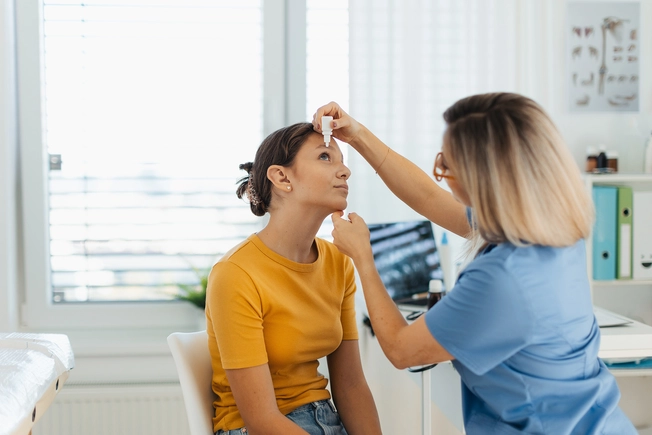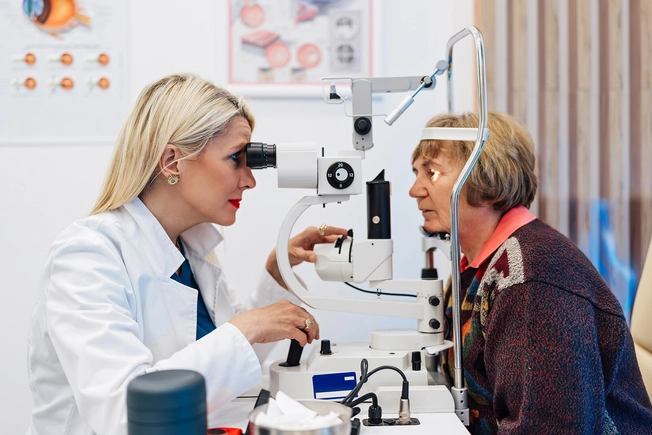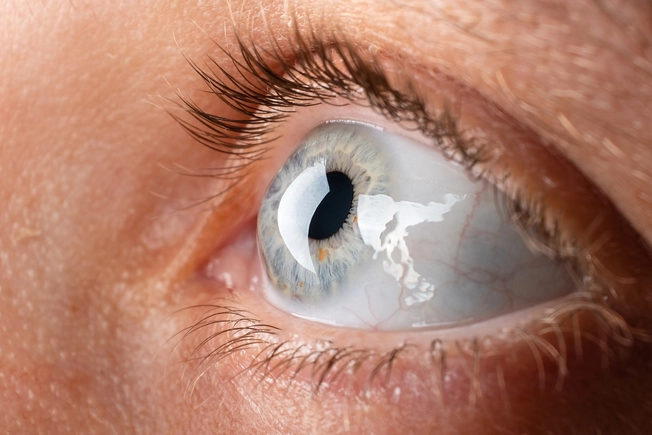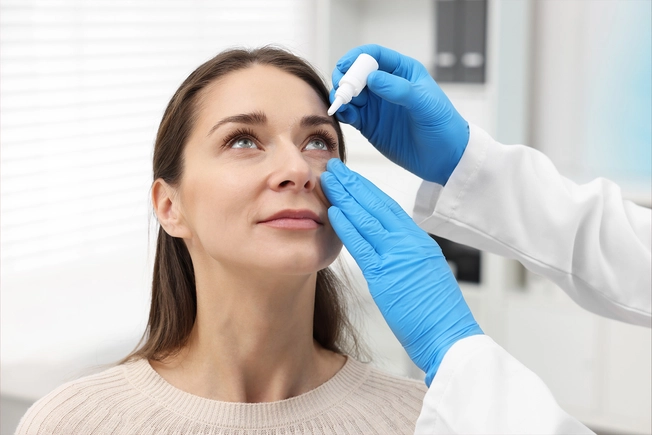- Overview
- Symptoms
- Causes & Risks
- Tests & Diagnosis
- Treatment
- Living With
- Complications
- Support & Resources
- Appointment Prep
- View Full Guide
Crohn's Disease & Eye Problems


How Crohn's Can Affect Your Eyes
When you have Crohn's disease, inflammation doesn't always stay in your digestive tract. Nearly half of people with Crohn's also have inflammation in their eyes or other parts of the body.

Recognizing Early Signs
Eye inflammation may appear before digestive symptoms. It's important to see an eye doctor as soon as you notice any changes in your vision, such as frequent redness, pain, or blurry vision.

Regular Eye Exams
Stay up-to-date with your regular eye exams. They can catch eye complications early and possibly spot other health problems before symptoms show up.

Triggers for Eye Issues
Eye problems in Crohn's disease can be triggered by immune responses, family history, and oral steroids and other medications.
You're more likely to develop eye problems with Crohn's if you are older, have arthritis or other health problems, have symptoms mainly in your colon, or have frequent flare-ups.

Types of Eye Problems in Crohn's Disease
One common eye issue with Crohn's is episcleritis, an inflammation of the white part of the eye. It's not painful and usually doesn't need treatment but can make your eyes look red and irritated. Uveitis is another common eye problem. Depending on the type of uveitis, your doctor may treat it with steroid drops or pills, or drugs that suppress the immune system.

Managing Dry Eye Disease
Dry eye is a common complaint. Your doctor may recommend artificial tears or an eye ointment, omega-3 supplements, medication, using a humidifier in your bedroom, or other strategies.
Photo Credits:
1) Andrey_Popov/Shutterstock
2) Halfpoint/Shutterstock
3) DuxX/Shutterstock
4) Parkin Srihawong/Shutterstock
5) fukume/Shutterstock
6) New Africa/Shutterstock
StatPearls: “Extraintestinal Manifestations of Inflammatory Bowel Disease.”
World Journal of Gastroenterology: “Ophthalmic manifestations in patients with inflammatory bowel disease: A review.”
American Academy of Ophthalmology: “20 Surprising Health Problems an Eye Exam Can Catch.”
Survey of Ophthalmology: “Steroid-induced glaucoma: Epidemiology, pathophysiology, and clinical management.”
French Journal of Ophthalmology: “Ocular manifestations of Crohn’s disease.”
The Johns Hopkins Wilmer Eye Institute: “Scleritis.”
Mayo Clinic: “Uveitis,” “Dry Eye Disease,” “Mayo Clinic Q and A: Fish oil supplements and dry eyes.”
Turkish Journal of Ophthalmology: “Current Management and Treatment of Dry Eye Disease.”
Crohn’s and Colitis Foundation: “Eye Complications.”